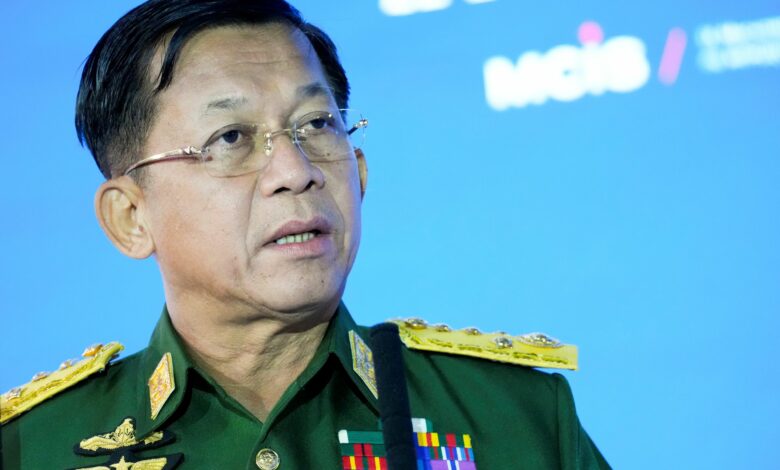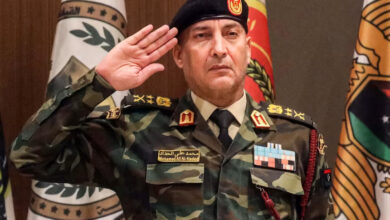
BANGKOK, Aug 1 (Reuters) – Myanmar’s military ruler Min Aung Hlaing on Sunday again promised new multi-party elections and said his government is ready to work with any special envoy named by the Association of Southeast Asian Nations (ASEAN).
He spoke in a televised address six months after the army seized power from a civilian government after disputed elections won by Nobel laureate Aung San Suu Kyi’s ruling party, which he called “extremists” and accused of inciting violence.
“Myanmar is ready to work on ASEAN cooperation within the ASEAN framework including the dialogue with the ASEAN Special Envoy in Myanmar,” Min Aung Hlaing said.
ASEAN foreign ministers are to meet on Monday, when diplomats say they aim to finalise a special envoy tasked with ending violence and promoting dialogue between the junta and its opponents.
Min Aung Hlaing also repeated a pledge to restore democracy, though again without detailing a time frame.
“I guarantee the establishment of a union based on democracy and federalism,” he said.
The army seized power on Feb. 1 from the civilian government led by Aung San Suu Kyi after her ruling party won elections that the military argues were tainted by fraud. It has said its takeover was in line with the constitution.
The country’s electoral commission has dismissed the fraud allegations.
Since the coup, military authorities have faced protests, strikes that have paralysed public and private sectors, and a resurgence of armed conflicts in the borderlands.
The military authorities have branded their opponents terrorists.
“At present, the whole country is stable except for some terrorist attacks,” Min Aung Hlaing said in his speech.
The Assistance Association for Political Prisoners activist group has accused the armed forces of killing 939 people in suppressing dissent since the coup and said at least 6,990 military opponents have been arrested.
The military said the number of protesters killed is far lower and members of the armed forces have also died in violence. It said its response has met international norms in the face of threats to national security.
Reporting by Reuters Staff. Writing by Kay Johnson; Editing by Christopher Cushing




